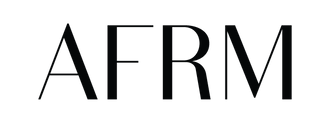CA Supply Chains Act

AFRM, (the “Company”), takes careful measures to combat human trafficking and forced labor in the supply chain that contributes to the sourcing, manufacture, distribution and sale of our products. It is important to us that our manufacturing, distribution and sales processes, and those of our vendors, are consistent with internationally recognized labor standards, and that wherever our products are produced, each and every item reflects our company’s values.
While AFRM recognizes that there are different legal and cultural environments in which factories operate throughout the world, our Code of Conduct sets forth the basic requirements that all factories must meet in order to do business with us.
AFRM’s Code of Conduct provides the foundation for our ongoing evaluation of a factory's employment practices and environmental compliance. This Code of Conduct is based on internationally accepted labor standards, including the United Nations Universal Declaration of Human Rights. Under no circumstances is it acceptable for child, forced or trafficked labor to be used in the production of any AFRM product. We believe that no person should be subject to a situation in which his or her basic human needs and fundamental rights are denied. AFRM’s Code of Conduct explicitly states that forced labor or child labor or involuntary labor of any kind is strictly prohibited.
In 2010, a law went into effect in the state of California requiring companies to disclose what they are doing to address human trafficking in their supply chains. This law, known as the California Transparency in Supply Chains Act of 2010 and commonly referred to as “SB657,” seeks to "educate consumers on how to purchase goods produced by companies that responsibly manage their supply chains...to improve the lives of victims of slavery and human trafficking."
In order to comply with SB657 and describe for you, our customer, the efforts AFRM is making to address human trafficking in our supply chain, we are making the disclosures set forth below.
1. We verify our product supply chains to evaluate and address any risks of human trafficking and slavery.
AFRM monitors nearly 100% of the garment factories that produce apparel for us.
We conduct both announced and unannounced inspections of these factories to verify compliance with our Code of Conduct, which includes prohibition of forced labor and involuntary labor.
Our inspections are conducted by our own team of Social Compliance Auditors and/or by UL-STR – an internationally accredited third-party auditing firm.
2. We conduct audits of suppliers to evaluate supplier compliance with AFRM standards for trafficking and slavery in supply chains.
AFRM conducts both announced and unannounced audits in factories that produce our apparel. As with our inspections, these audits are conducted by our own team of Social Compliance Auditors and/or by UL-STR.
Our Code of Conduct states that factories must not use forced or involuntary labor of any kind. Human trafficking and slavery fall under the categorization of "forced labor" and "involuntary labor."
All factories with whom we do business must allow AFRM and/or its representatives unrestricted access to its facilities and to all relevant records at all times during regular business hours, whether or not notice is provided in advance.
3. We require direct suppliers to certify that materials incorporated into the AFRM products comply with laws regarding slavery and human trafficking of the country or countries in which AFRM does business.
AFRM requires that all factories producing our apparel operate in full compliance with the laws of their respective home countries, including those relating to labor and worker health and safety.
4. We maintain internal accountability standards and procedures for employees and contractors who fail to meet AFRM's standards regarding slavery and trafficking.
Failure of AFRM employees to abide by our Code of Conduct may result in corrective action, including termination of employment.
Failure of factories to abide by our Code of Conduct may result in corrective action, including the termination of business.
5. We provide our employees who have direct responsibility for supply chain management training on human trafficking and slavery, particularly with respect to mitigating risks within the supply chains of products.
AFRM employs a Social Compliance Director and Social Compliance Team who work directly with factory management and workers in the factories with which we do business.
Our Social Compliance Team is trained in how to identify situations that pose potential risks for involuntary labor of any kind.
For additional information, please contact us at info@shopafrm.com.




